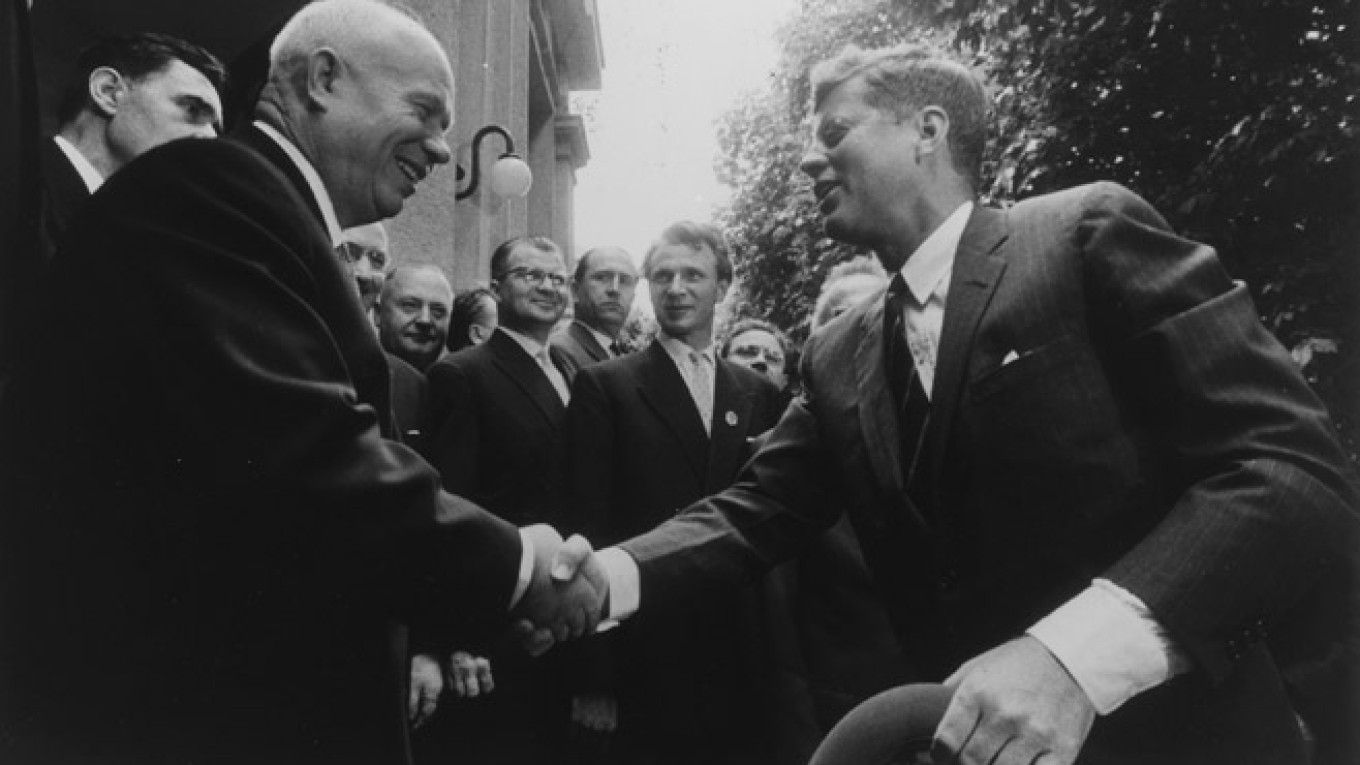This month marks 52 years since the Cuban missile crisis, which took place from Oct. 14 to 28 in 1962. The crisis was a confrontation between the Soviet Union and the United States over Soviet ballistic missiles deployed in Cuba. It was the closest the Cold War ever came to escalating into a full-scale nuclear war.
Today, as the world is going through one of the sharpest crises of international relations in recent years, the Cuban missile crisis — or, as Russians call it, "the Caribbean crisis" — may help us understand some very important things. The most pertinent of these is the escape from "historical inevitability."
It is no exaggeration to say the history of mankind changed its path in October 1962.
The 20th century began with World War I. Twenty years after that war ended with the devastation of Europe and the disillusionment of a generation, humankind stumbled into another war — World War II — which proved to be even more destructive.
History seemed to illustrate a tendency for many nations to lurch from one catastrophic war to the next. Just 17 years later, the world found itself on the brink of another world war and faced with the possibility of total nuclear annihilation.
The leaders of the world's two most powerful countries — the Soviet Union and the U.S., both possessing huge stockpiles of nuclear weapons — were ready to "push the button."
The story of the Cuban missile crisis is the story of how the world came to the brink of nuclear war and what was done to prevent that war, but most importantly — it is a story of political decision-making that made it possible to stop the vicious circle of constant warfare.
Back in the nerve-wracking days of October 1962, history seemed to indicate to political leaders that there was no way to escape an escalation of the crisis.
Moreover, there were also hard-liners in both governments and military commands who were afraid of compromise, seeing it as a sure sign of weakness — unacceptable in the dark days of the Cold War.
War seemed inevitable for many well-informed people in Washington and Moscow, as the rest of the world looked on from their television sets.
But the war didn't happen, so today we live in a world that is far from perfect but is not built out of the ashes of yet another destructive war. It is clear that the compromise on Cuba was a wise move for both sides. The political leaders of the Soviet Union and the U.S. found enough resolve to get out of the destructive pattern of international escalation and find a new solution.
It is no exaggeration to say that the history of mankind changed its path in October 1962.
There were factors that facilitated the search for a compromise. The legacy of the great alliance of World War II, in which the Soviet Union and the U.S. fought together against Nazi Germany, was still alive. In 1958, the Lacy-Zarubin agreement facilitated cultural and scientific exchanges between the two countries, which included the resounding success of the Russian Moiseyev Dance Company, which toured throughout the U.S.
Thanks to these initiatives, Russians and Americans viewed each other as creative, educated people rather than dehumanized caricatures. The charismatic personalities of Soviet leader Nikita Khrushchev and U.S. President John F. Kennedy added the spice of their rather unusual characters to the decision-making process.
Diplomats and intelligence officers did their best to establish mutual trust amid the unfavorable circumstances. Still, the political decision to withdraw from the confrontation was hard to make.
The crisis of October 1962 changed international values. A "hot line" was established between Moscow and Washington to ensure that such a dangerous situation would never happen again.
Later successful attempts at detente — an improvement in relations between the two superpowers — were the results of that new thinking. The Cuban missile crisis of 1962 provided us with an example of a break with historical inevitability.
Today the world is different. The world is not bipolar anymore, and international relations include relatively strong communities of nations pursuing their own agendas.
Despite the use of heavy-handed propaganda by both sides and diplomatic clashes over the Ukraine crisis, there is no Cold War between Russia and the U.S. now. Two competing ideological projects do not shape international relations.
But there are reasons for some anxiety. Today's generation of world leaders has no personal experience of the brinkmanship diplomacy and the successful avoidance of military confrontation between great powers that was seen during the Cuban missile crisis.
There is a risk that today's leaders may forget or misinterpret the major diplomatic achievements of the political leadership of half a century ago, and thus repeat the failures of those earlier generations that led the world into two world wars.
There is no historical inevitability. History is open to the achievements and failures of decision-making. Let it be responsible and wise.
Ivan Kurilla is a professor at Volgograd State University.
A Message from The Moscow Times:
Dear readers,
We are facing unprecedented challenges. Russia's Prosecutor General's Office has designated The Moscow Times as an "undesirable" organization, criminalizing our work and putting our staff at risk of prosecution. This follows our earlier unjust labeling as a "foreign agent."
These actions are direct attempts to silence independent journalism in Russia. The authorities claim our work "discredits the decisions of the Russian leadership." We see things differently: we strive to provide accurate, unbiased reporting on Russia.
We, the journalists of The Moscow Times, refuse to be silenced. But to continue our work, we need your help.
Your support, no matter how small, makes a world of difference. If you can, please support us monthly starting from just $2. It's quick to set up, and every contribution makes a significant impact.
By supporting The Moscow Times, you're defending open, independent journalism in the face of repression. Thank you for standing with us.
Remind me later.


